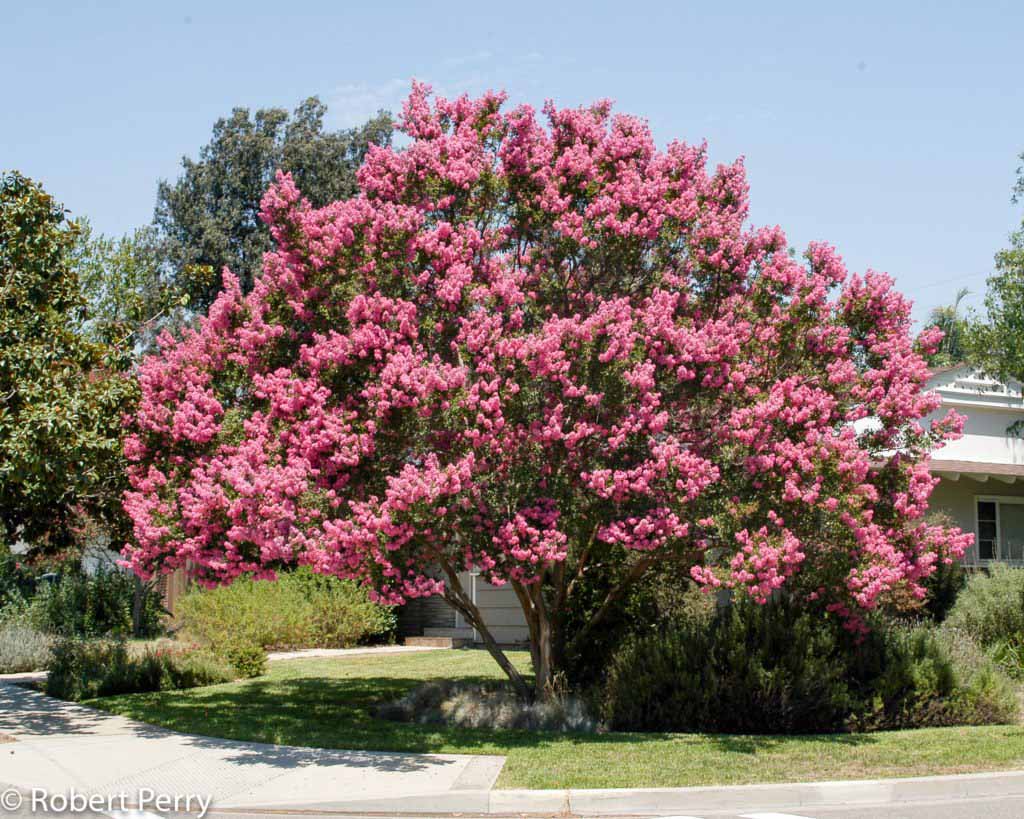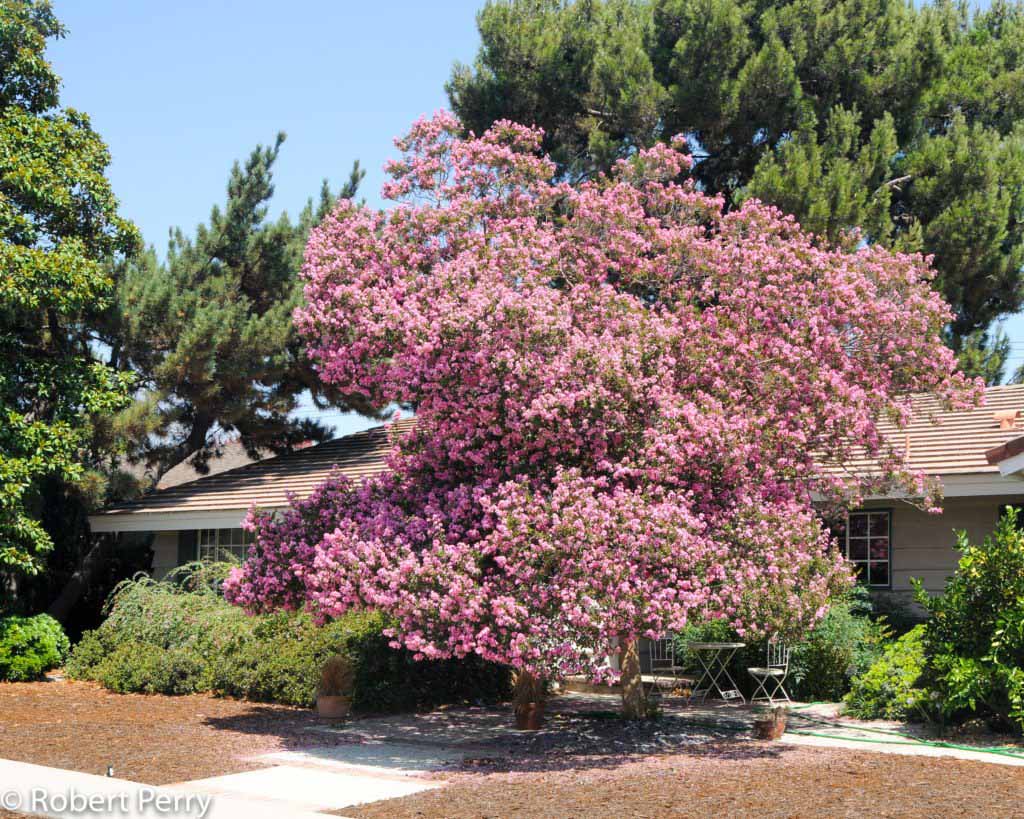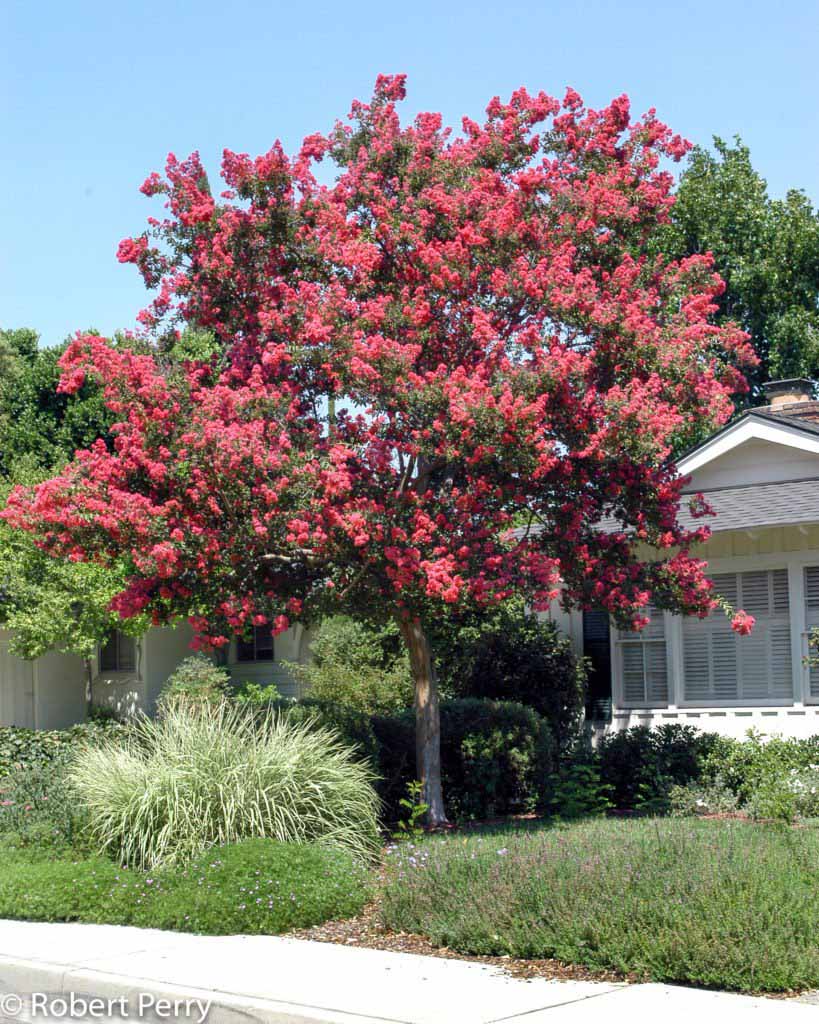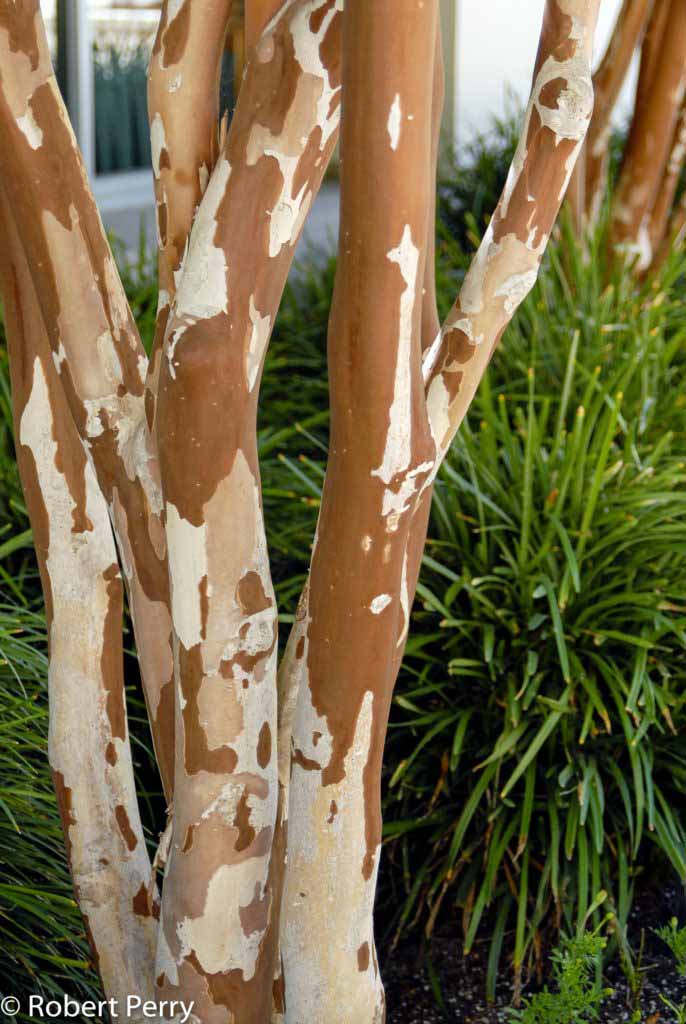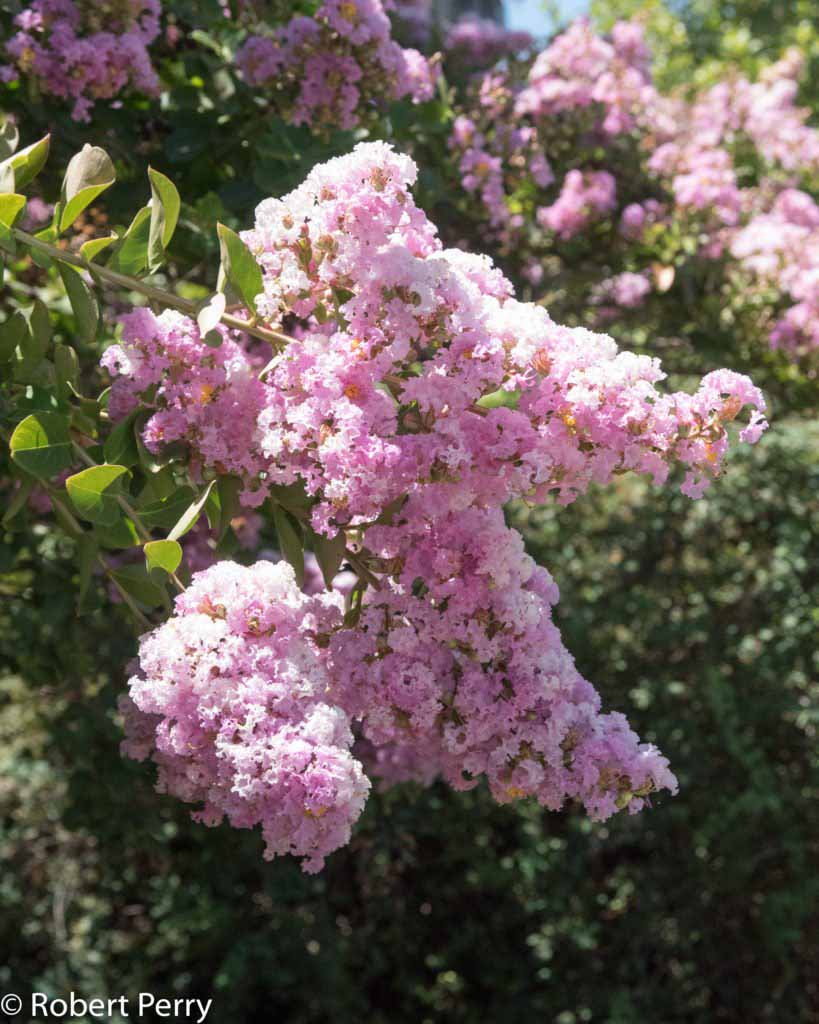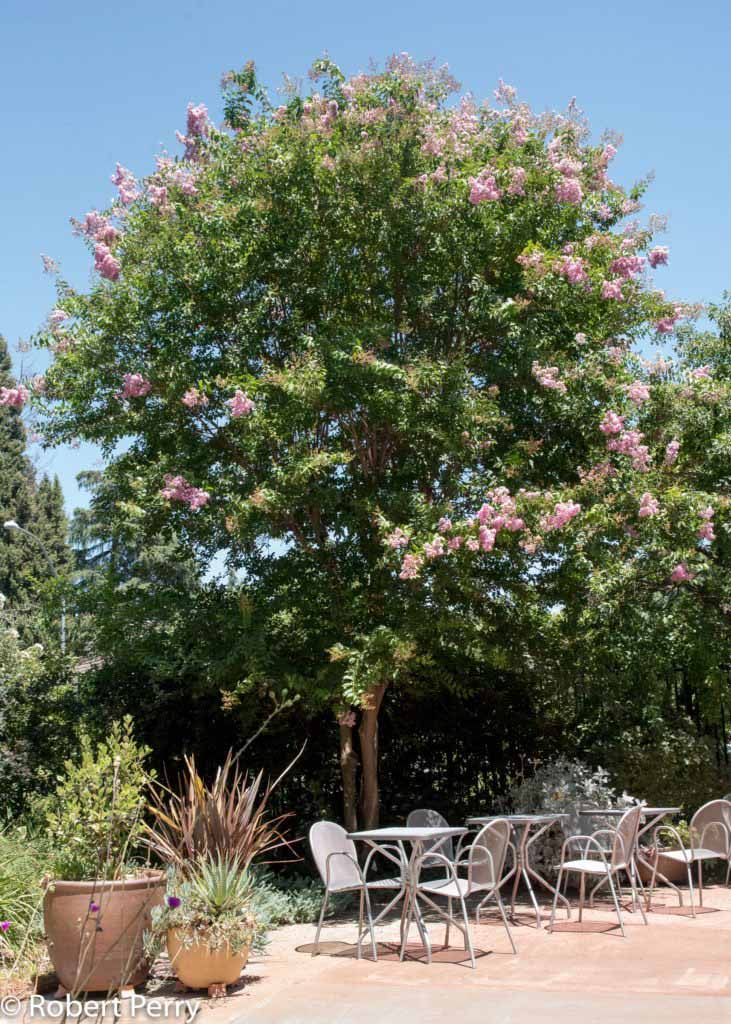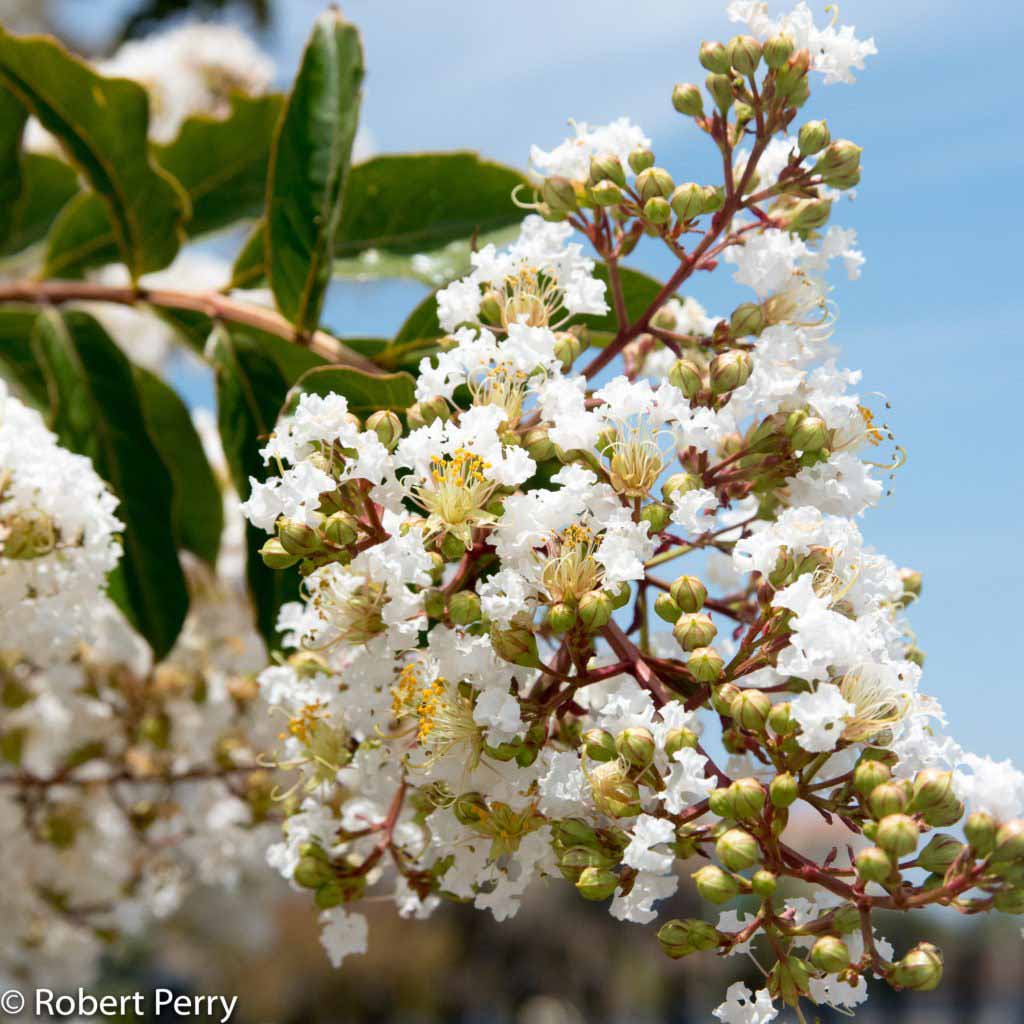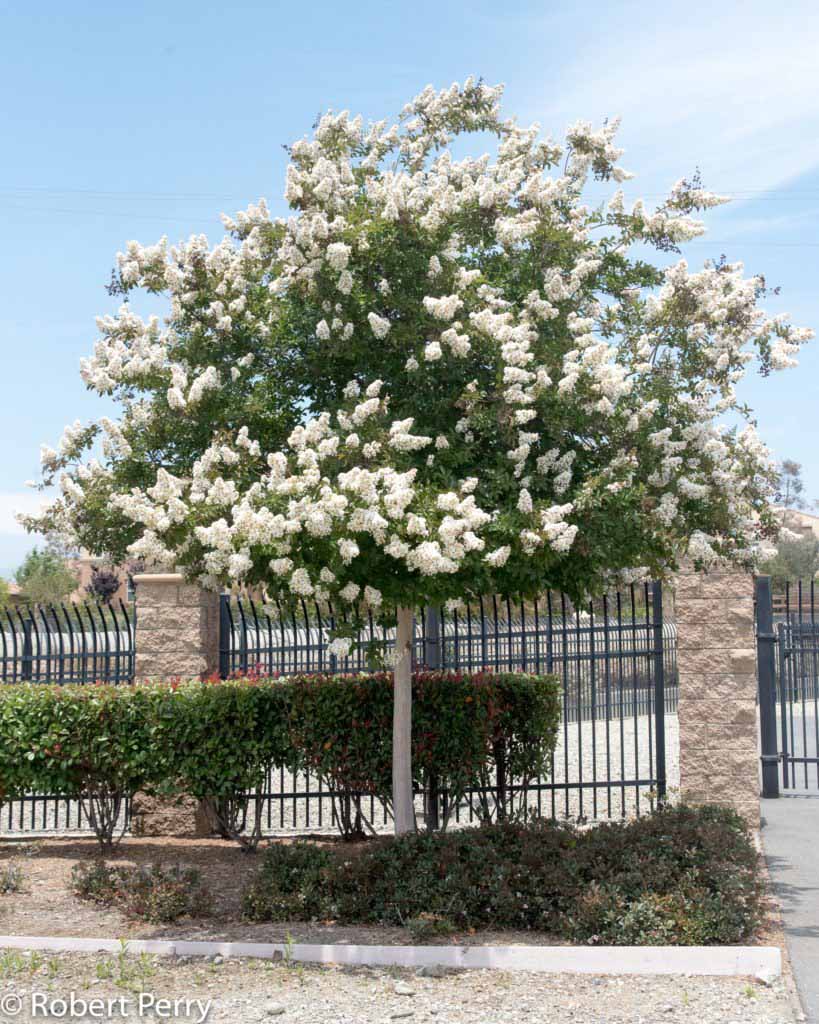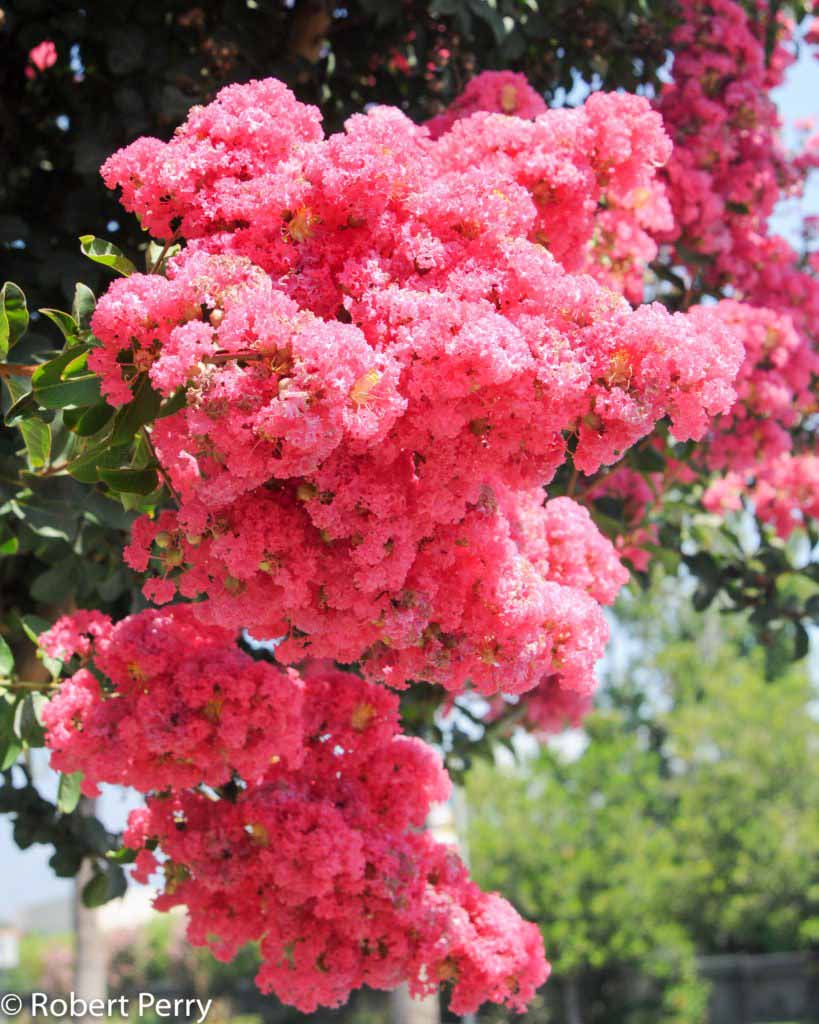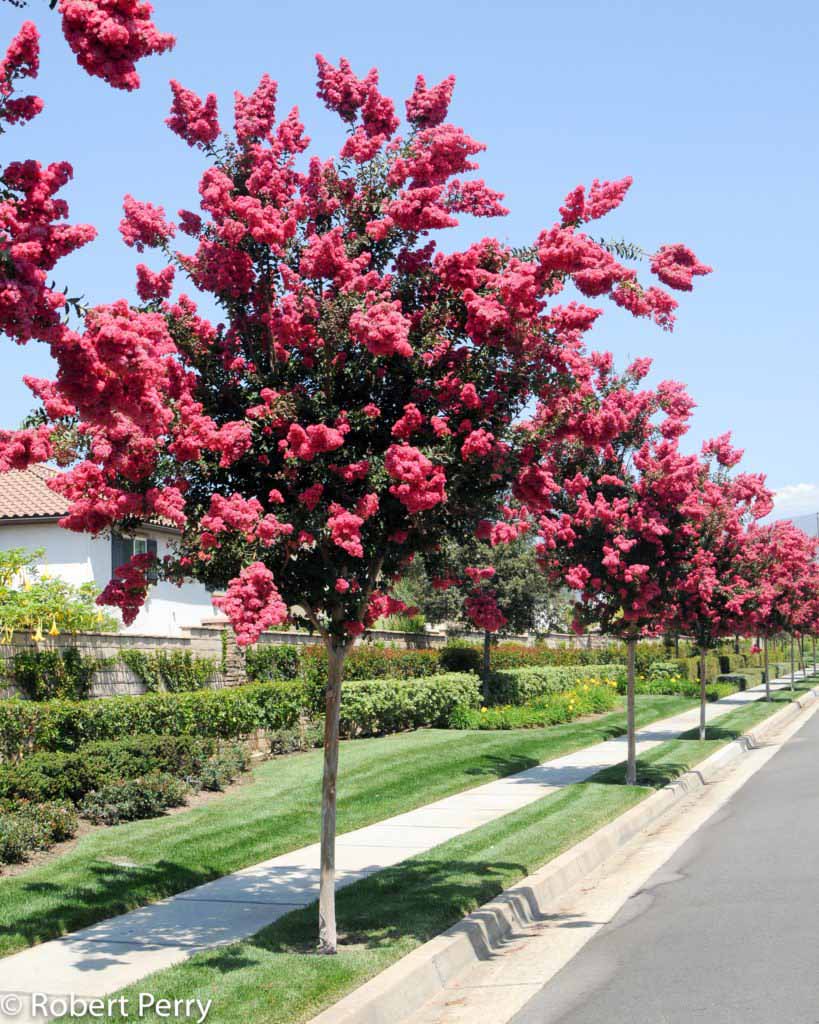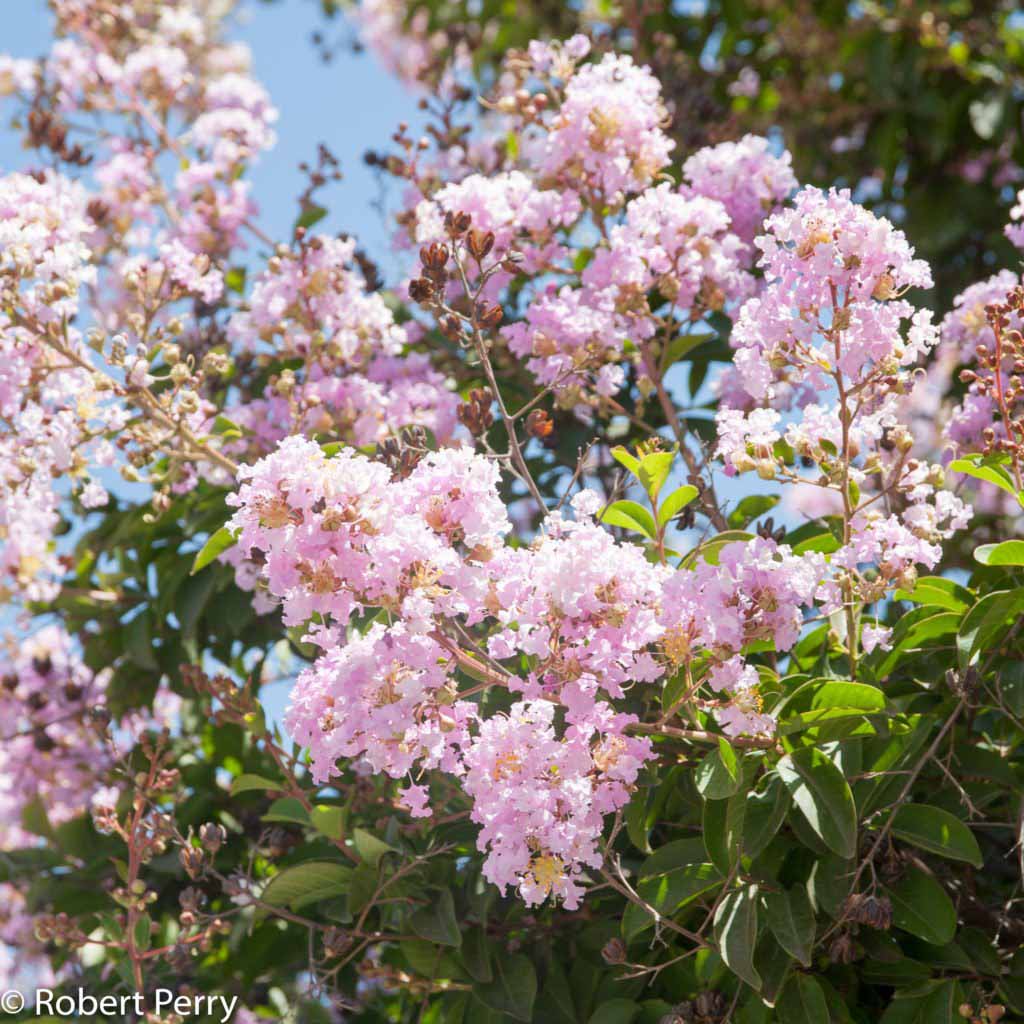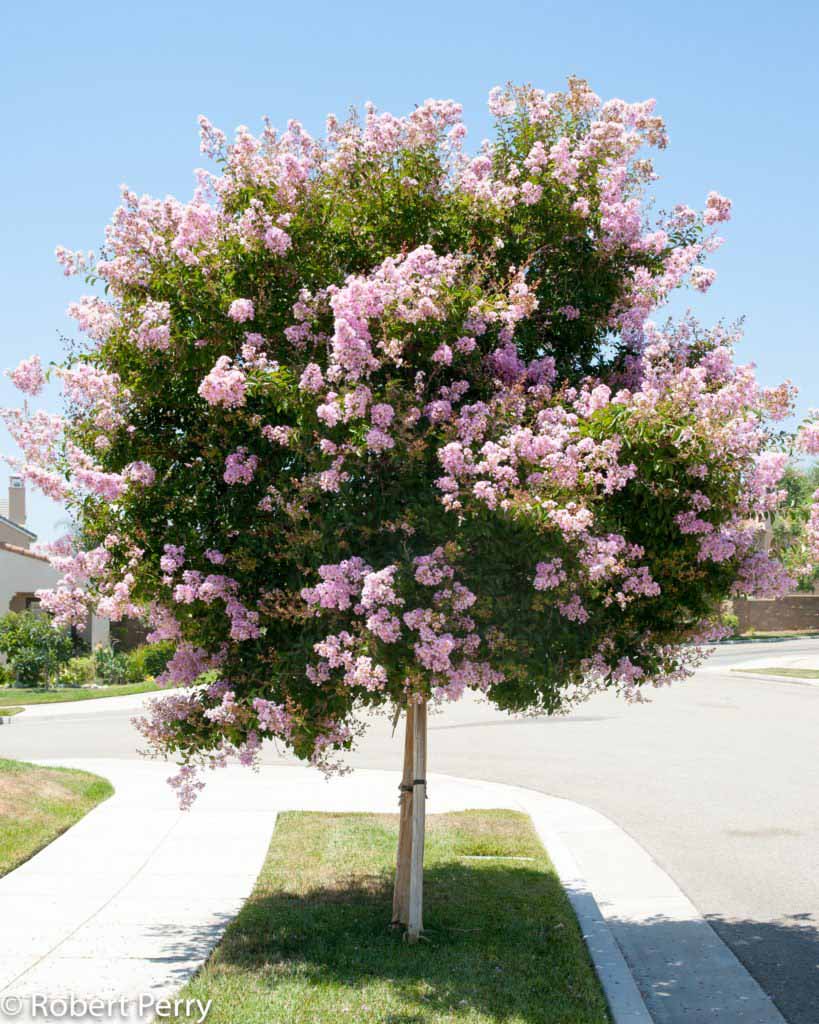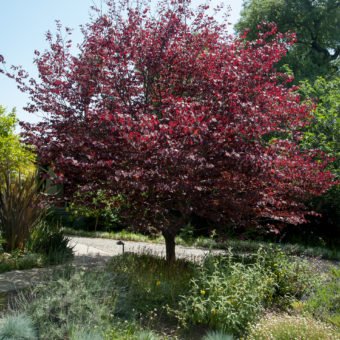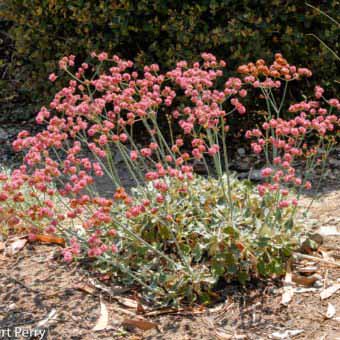Crape myrtles are one of the most commonly planted trees throughout the Inland Empire in both residential gardens and public landscapes. It’s popularity stems from the many flower colors and relative small size for urban trees. Horticultural interest in this genus has resulted in a vast range of cultivars; it is best to check with local nurseries to make the best choice for home and garden. Many new cultivars are fast growing and resistant to mildew and grow 20-30 ft. tall. They can be purchased as multi-trunk or single trunk trees. All have large 3-4 in. long leaves, dense flower panicles, colorful brown, cream and gray bark and offer a variety of flower colors in the summer. Most trees produce vivid yellow to orange to red fall color with cool temperatures. They grow best when planted in full sun, in loamy soils and with moderate summer water.
The image gallery shows several Crape myrtle flower colors, including: white flowering L. x ‘Natchez’, deep pink flowering L. x ‘Tuscarora’, and light pink flowering L. x ‘Biloxi’.
